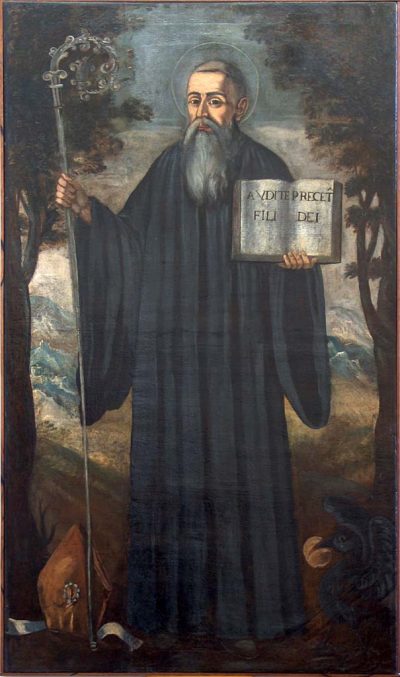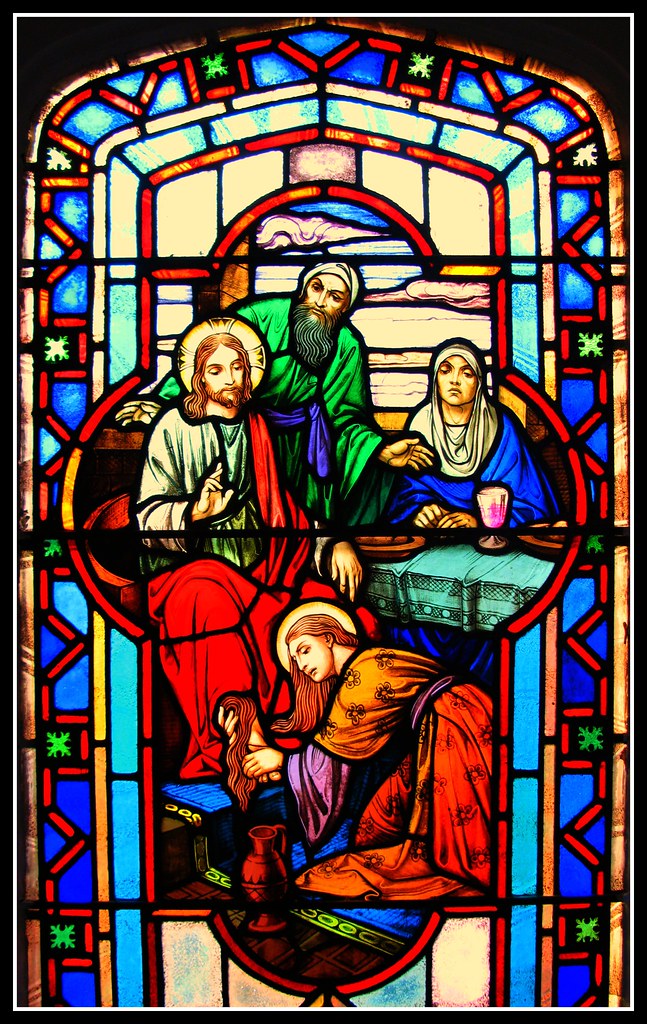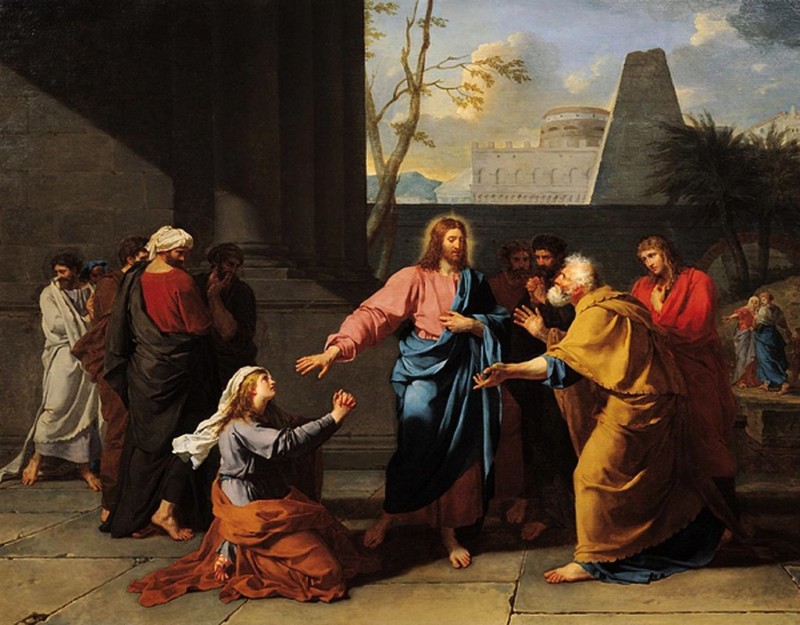Deep lies my soul in the dust (XLIV)

CHAPTER XLIV.
Of those who are excommunicated, how they are to make satisfaction
24 Mar. 24 July. 23 Nov.
Let him, who for graver offences is excommunicated from the Oratory and the table, prostrate himself at the door of the Oratory, saying nothing, at the hour when the Work of God is being performed: lying prone, with his face upon the ground, at the feet of all who go out from the Oratory. Let him continue to do this until the Abbot judge that he hath made satisfaction: and then, coming at the Abbot’s bidding, let him cast himself at his feet and at the feet of all, that they may pray for him. After this, if the Abbot so order, let him be received back into the choir, in such a place as he shalt appoint: yet so, that he presume not to intone Psalm or lesson, or anything else, in the Oratory, unless the Abbot again command him. And at all the Hours, when the Work of God is ended, let him cast himself on the ground, in the place where he standeth, and so make satisfaction, until such time as the Abbot bid him cease therefrom. But let those, who for lighter faults are excommunicated only from the table, make satisfaction in the Oratory so long as the Abbot shall command, and continue so doing until he bless them and say it is enough.
Just as the root of every vice is pride, so too does the remedy for every vice require a profound humiliation. The excommunicated monk says nothing in his own defense. He simply lies prostrate with his face upon the ground at the feet of all the others. No dialogue here, no discussion, no negotiating for a face-saving settlement. Silence and humility must cleanse the guilty monk and repair the consequences of his pride. The chastened monk begins to make the prayer of the psalmist his own:
Deep lies my soul in the dust, restore life to me, as thou hast promised. Deign, now, to shew me thy will, thou who hast listened when I opened my heart to thee. Direct me in the path thou biddest me follow, and all my musing shall be of thy wonderful deeds. Despair wrings tears from me; let thy promises raise me up once more. Deliver me from every false thought; make me free of thy covenant. Duty’s path my choice, I keep thy bidding ever in remembrance. Disappoint me, Lord, never, one that holds fast by thy commandments. Do but open my heart wide, and easy lies the path thou hast decreed. Expound, Lord, thy whole bidding to me; faithfully I will keep it. (Psalm 118:25–23)
It is not the excommunicated monk who measures the duration of this humiliation. He must learn obedience again. Thus does he wait upon the abbot’s bidding. Once the abbot has indicated that the excommunicated monk may proceed to the next step in his reconciliation, a part of the ceremony of profession is repeated: the monk casts himself at the feet of the abbot and of all the brethren ut orent pro ipso. Compare this rite with what is described in Chapter LVIII:
Then let the newly-received brother cast himself at the feet of all, that they may pray for him, and from that day let him be counted as one of the community.
The reconciliation of a brother repairs the bonds broken by his pride and disobedience. The monk repeats the very action carried out on the day of his profession, kneeling at the feet of all that they may pray for him. Just as on the day of his profession this gesture signified his being numbered among the community, so too, on the day of his reconciliation does the same gesture signify his readmission to the acies fraterna, the ranks of the brethren.
Even after this step, however, the reintegration of the monk is not complete. Saint Benedict wisely provides for a further time of convalescence during which the monk is neither to intone in the Oratory, nor read, nor carry out any other liturgical function. All during this time of convalescence, he is to cast himself on the ground at the end of the Divine Office, thereby acknowledging in the presence of all that he remains weak and in need of the charity and suffrages of all. This period of convalescence continues until the abbot, like a good physician, judges the brother strong enough to resume the full pensum servitutis, the full measure of his bounden service.


